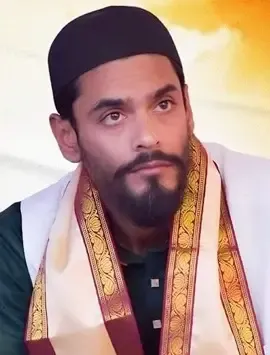Is Pakistan Still a Military Society with a Strong Islamist Influence?

Synopsis
Key Takeaways
- Pakistan's military influence remains strong.
- India is positioned as a democratic superpower.
- US relations with Pakistan require caution.
- Abbott praises Modi's transformative leadership.
- Australia must address rising racial tensions.
New Delhi, Oct 17 (NationPress) Former Prime Minister of Australia, Tony Abbott, stated on Friday that at its core, Islamabad continues to be a "military society" with a "robust Islamist influence", contrasting it sharply with India.
Speaking at the NDTV World Summit in New Delhi, Abbott criticized Pakistan for its history of supporting terrorism and recalled the discovery of Al-Qaeda's founder Osama bin Laden in Abbottabad.
When questioned about comments from prominent US Generals regarding cooperation with Pakistan on terrorism, Abbott replied, "Pakistan collaborated so closely with the United States on terrorism that they provided Osama bin Laden a refuge for nearly a decade." He emphasized, "We must not be misled. There are admirable individuals in Pakistan and those worth collaborating with, but it fundamentally remains a military society with a strong Islamist influence. India is entirely different, completely different." Abbott added that while he acknowledges the necessity of US engagement with Pakistan, it is imperative to identify reliable allies, remarking, "It’s crucial to recognize where your true friends are, based on shared interests and values."
He asserted that the core interests of the United States should align more closely with India than with Pakistan. Abbott highlighted India's commitment to fostering relationships with democracies rather than dictatorships.
Describing India as an emerging "democratic superpower", he noted that the 21st century will be significant for both India and China. He predicted that India's Prime Minister is poised to become a leader of the free world in the next 40-50 years.
Abbott stated, "China's leadership represents a party dictatorship rather than a personal one. During my tenure, I projected India as a forthcoming democratic superpower, and that vision has materialized. The Indian PM is likely to lead the free world in the next 40-50 years."
He also addressed the increasing racial attacks against Indians in Australia, stating, "There are two critical issues. Is immigration to Australia excessively high? We have seen record numbers this year. Should immigration be reduced? Additionally, Melbourne faces a crime issue with gangs out of control. The Victorian police are addressing this problem and must reclaim the streets."
In these uncertain times globally, Abbott emphasized the importance of strengthening the friendship between Australia and India, which is deep-rooted and continually evolving.
"I highly admire Prime Minister Modi, viewing him as a transformative leader and a monumental figure in history," Abbott remarked to IANS on the sidelines of the NDTV World Summit.









